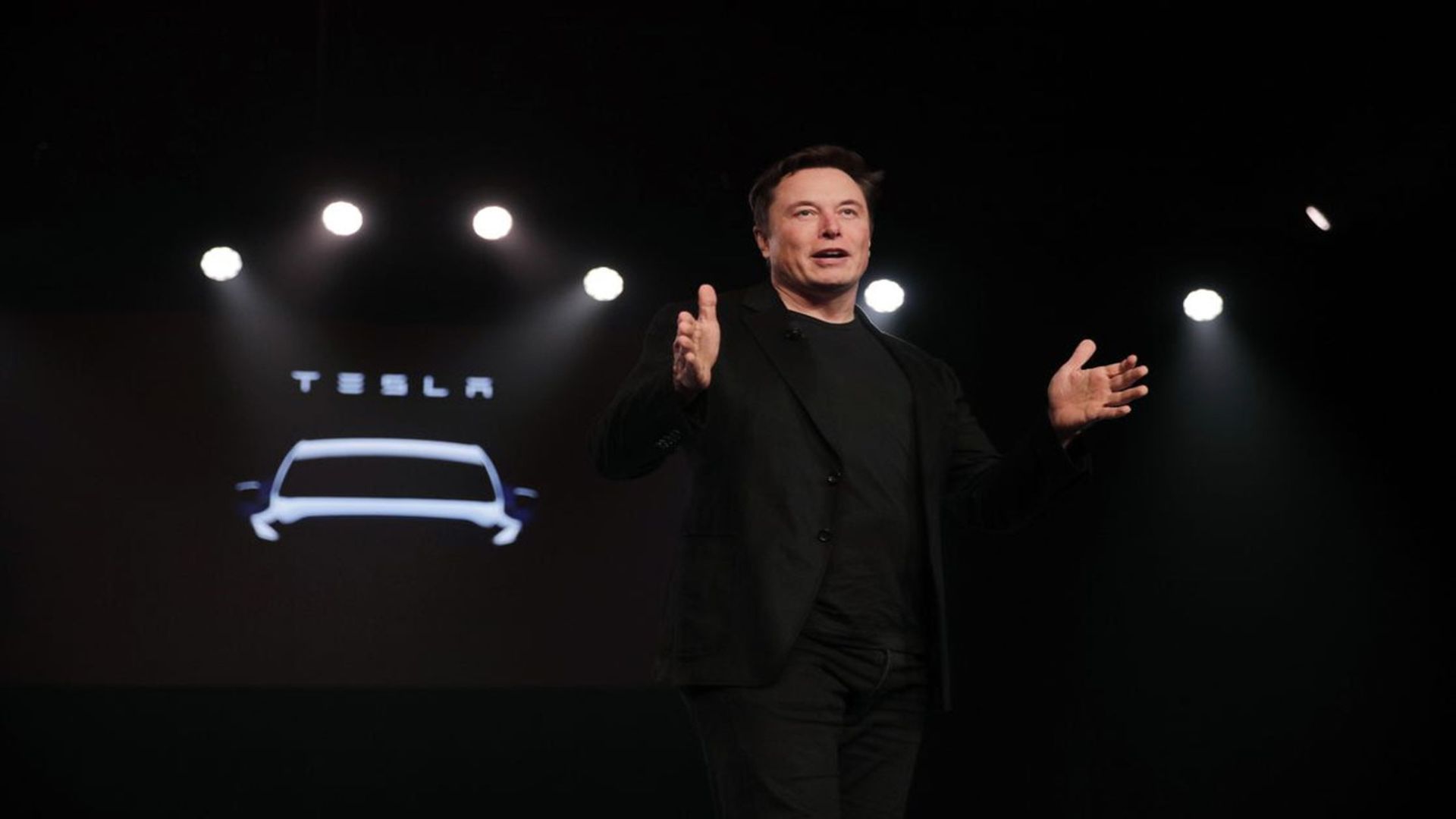Apr 22, 2019 - Energy & Climate
Elon Musk to announce full autonomy for Teslas despite expert skepticism
Add Axios as your preferred source to
see more of our stories on Google.

Musk unveils the Model Y at Tesla's design studio in Hawthorne, Calif., in March. Photo: Jae C. Hong/AP
